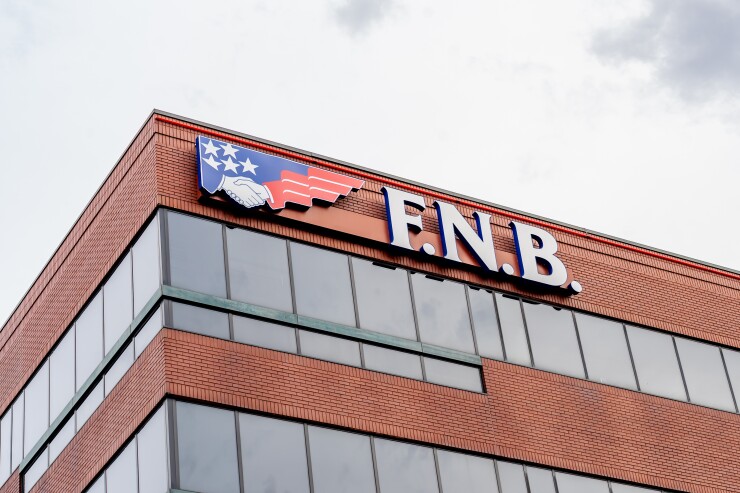F.N.B. Corp. in Pittsburgh is the latest bank to announce overdraft policy changes, including a $2 reduction in the fee that customers pay when they spend more than they have in their accounts.
The parent company of First National Bank of Pennsylvania plans to cut its overdraft fee from $37 to $35 — a relatively modest change compared with bigger price cuts that various larger banks have announced.
The $42.6 billion-asset company also plans to cut its nonsufficient-funds fee, which gets charged when transactions are rejected because customer accounts lack enough money, from $37 to $29. The changes are expected to become effective in the first quarter of next year.

Vincent Delie, the company's chairman and CEO, said in a press release that the fee changes are meant to ensure that the company is addressing a broad range of customer needs. "F.N.B. continually monitors current practices and changes in technology and our clients' preferences," he said.
The reduced fees are two of several overdraft-related reforms that F.N.B. unveiled on Tuesday. The company plans to eliminate continuous overdraft fees, which get charged repeatedly when accounts remain overdrawn. It also plans to reduce the maximum number of overdraft charges that a customer can incur in a day from six to four, and to stop charging overdraft fees on transactions of $5 or less.
F.N.B., which operates in seven states plus the District of Columbia, also plans to launch two products that may allow customers to avoid overdraft fees. The company expects to offer those products — a short-term, small-dollar loan that will allow consumers to apply digitally and receive funds quickly, plus a secured credit card that will enable customers to build their credit — next year.
As a result of the changes announced Tuesday, F.N.B. said that it expects its pretax overdraft-related fees to fall by about $10 million on a full-year basis. F.N.B.'s largest affiliate, First National Bank of Pennsylvania, reported $25.6 million in overdraft-related service charges last year, according to call report data.
Amid pressure from Biden-era regulators to reduce their reliance on overdraft fees, some larger banks have announced bigger price cuts than F.N.B.

For example, M&T Bank, which has $198 billion of assets,
Aaron Klein, a senior fellow at the Brookings Institution's Center on Regulation and Markets, recently estimated that the combined savings to consumers from overdraft-related changes that have already been announced
"The more a bank depends on overdraft revenue,"





